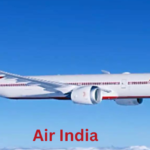In recent years, India’s Tata Group has been making headlines with its ambitious expansion plans and strategic acquisitions. One of the most significant deals in the company’s history was the acquisition of Jaguar Land Rover in 2008. However, Tata Group has now set its sights on a new frontier with a massive aircraft deal that could revolutionize the aviation industry.
In January 2023, Tata Group announced that it had signed a memorandum of understanding (MoU) with an unnamed aircraft manufacturer for the purchase of 220 aircraft. The deal is worth an estimated $25 billion, making it the largest aircraft deal in history. The agreement was signed in Dubai in the presence of the Indian Prime Minister, Narendra Modi, and the Crown Prince of Abu Dhabi, Sheikh Mohamed bin Zayed Al Nahyan.

The aircraft in question are narrow-body planes, which are typically used for short to medium-haul flights. Tata Group plans to use the planes for its airline, Vistara, which currently operates a fleet of Airbus A320neo and Boeing 787 Dreamliner aircraft. The addition of 220 narrow-body planes will significantly expand Vistara’s fleet and enable the airline to expand its domestic and international routes.
The aircraft manufacturer involved in the deal has not been officially announced, but there are rumors that it could be either Airbus or Boeing. However, there has been speculation that it could be a new player in the aviation industry, such as the Chinese manufacturer Comac.
The aircraft deal is a significant move for Tata Group, which has been investing heavily in the aviation sector over the past few years. Vistara was launched in 2015 as a joint venture between Tata Group and Singapore Airlines. The airline has since grown rapidly and is now one of the leading airlines in India, operating more than 200 flights per day to over 30 destinations.

The acquisition of 220 narrow-body planes will enable Vistara to compete more effectively with other airlines in the region, such as IndiGo and SpiceJet. The Indian aviation market is one of the fastest-growing in the world, with a projected growth rate of 10-15% over the next decade. The addition of 220 planes will enable Vistara to take advantage of this growth and expand its market share.
The aircraft deal is also significant for the global aviation industry. The purchase of 220 planes is a massive order, and it is likely to have a significant impact on the manufacturer chosen for the deal. If it is Airbus or Boeing, it will be a major boost for one of the world’s two leading aircraft manufacturers. If it is a new player in the industry, it could be a game-changer that disrupts the existing duopoly.
The aircraft deal is just one part of Tata Group’s ambitious plans for the aviation sector. The company has also been investing in airport infrastructure, ground handling services, and aerospace manufacturing. Tata Advanced Systems Limited (TASL), a subsidiary of Tata Group, has partnered with Lockheed Martin to manufacture F-16 fighter jets in India. The company also has a joint venture with Boeing for the production of Apache helicopter parts.
Tata Group’s investment in the aviation sector is part of its broader strategy to diversify its business interests and become a global player in a range of industries. The company has interests in a diverse range of sectors, including automotive, steel, and hospitality. However, the aviation sector is one of the most exciting and rapidly growing industries in the world, and Tata Group’s investment is a sign that the company is committed to being at the forefront of this growth.
220 planes to Vistara’s fleet will enable the airline to expand its domestic and international routes and compete more effectively with other airlines in the region. The deal is also a significant boost for the aircraft manufacturer chosen for the order, and could potentially disrupt the existing duopoly in the industry if it is a new player.
Tata Group’s investment in the aviation sector is a strategic move that aligns with its broader goal of becoming a global player in a range of industries. The company has been investing heavily in airport infrastructure, ground handling services, and aerospace manufacturing, and is poised to take advantage of the projected growth of the Indian aviation market.
Moreover, the deal will have a positive impact on the Indian economy, as it will create jobs and stimulate growth in related industries. According to reports, the deal is expected to generate more than 100,000 jobs in India, both directly and indirectly.
However, the aircraft deal is not without its challenges. The global aviation industry has been hit hard by the COVID-19 pandemic, and the recovery is expected to be slow and uncertain. The massive order of 220 planes will be a significant financial commitment for Tata Group and Vistara, and it remains to be seen how the companies will navigate the challenging economic environment.
Another challenge for Tata Group is the regulatory environment in India. The Indian aviation sector is heavily regulated, and there are often bureaucratic hurdles to overcome. The government has been taking steps to ease regulations and encourage investment in the sector, but more needs to be done to create a business-friendly environment that encourages innovation and growth.
In conclusion, Tata Group’s acquisition of 220 narrow-body planes is a significant move that demonstrates the company’s commitment to being a global player in the aviation industry. The deal is worth $25 billion and is the largest aircraft deal in history, and it will have a positive impact on the Indian economy by creating jobs and stimulating growth. However, the deal also presents significant challenges for Tata Group, particularly in navigating the uncertain economic environment and the complex regulatory landscape in India. Despite these challenges, Tata Group’s investment in the aviation sector is a strategic move that positions the company for long-term growth and success.



